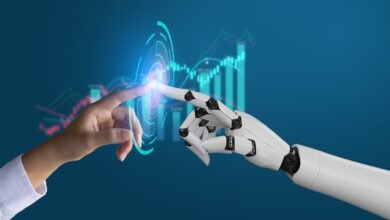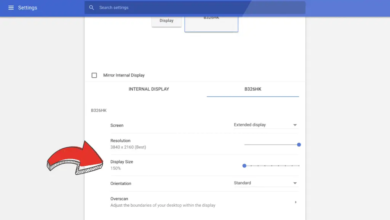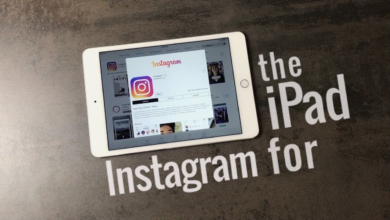How AI Is Reshaping Digital Marketing Tactics
AI is reshaping digital marketing tactics through personalization, chatbots, and data analytics. Discover how AI boosts and ROI for businesses."

Artificial Intelligence (AI) is revolutionizing Digital Marketing tactics, enabling brands to deliver smarter, faster, and more personalized customer experiences. By leveraging machine learning, predictive analytics, and automation, businesses can optimize campaigns, enhance targeting, and maximize ROI like never before. AI-powered tools analyze vast amounts of data in real-time, allowing marketers to make data-driven decisions, predict consumer behavior, and refine strategies for better engagement. As competition intensifies, companies that integrate AI into their Digital Marketing efforts gain a significant competitive edge, ensuring efficiency, scalability, and long-term success.
The rise of AI in Digital Marketing has transformed traditional approaches, making them more precise and adaptive. From chatbots and programmatic advertising to AI-generated content and voice search optimization, AI is reshaping how brands connect with their audiences. Marketers who embrace these advancements can automate repetitive tasks, personalize interactions at scale, and uncover deeper consumer insights ultimately driving stronger customer relationships and higher conversion rates. This is explores the key ways AI is redefining Digital Marketing and how businesses can harness its power to stay ahead in an evolving digital landscape.
How AI Is Reshaping Digital Marketing Tactics
The Role of AI in Modern Digital Marketing
The digital marketing landscape is evolving rapidly, and AI sits at the core of this transformation. Traditional marketing methods relied on manual analysis and generalized campaigns, but AI introduces automation, precision, and adaptability. Machine learning algorithms process consumer data in real-time, allowing marketers to refine targeting, improve ad placements, and enhance customer interactions. AI’s ability to predict trends and personalize content ensures that businesses stay ahead of competitors while meeting ever-changing consumer demands.
Personalized Customer Experiences
One of the most significant ways AI reshapes digital marketing is through hyper-personalization. AI-driven tools analyze user behavior, purchase history, and browsing patterns to deliver tailored recommendations. Platforms like Netflix and Amazon use AI to suggest products or content based on individual preferences, significantly boosting engagement and conversions. Email marketing campaigns powered by AI automatically segment audiences and optimize send times, increasing open rates and click-through rates.
Chatbots and Conversational Marketing
AI-powered chatbots have revolutionized customer service and lead generation. These virtual assistants provide instant responses, resolve queries, and guide users through sales funnels without human intervention. Chatbots use Natural Language Processing (NLP) to understand and respond to customer inquiries, improving user experience while reducing operational costs. Brands like Sephora and H&M use chatbots to offer personalized shopping advice, enhancing customer satisfaction and retention.
Predictive Analytics for Smarter Decision-Making
Predictive analytics leverages AI to forecast future consumer behavior based on historical data. Marketers use these insights to optimize ad spend, identify high-value customers, and anticipate market trends. AI tools like Google Analytics and IBM Watson analyze patterns to recommend the best strategies for engagement and conversion. By predicting which leads are most likely to convert, businesses can allocate resources more efficiently, maximizing ROI.
Programmatic Advertising and AI-Driven Ad Optimization
Programmatic advertising automates the buying and placement of ads using AI algorithms. These systems analyze user data to display the right ads to the right audience at the optimal time, minimizing wasted impressions. Real-time bidding (RTB) ensures that ad spaces are purchased dynamically, improving cost-efficiency. AI also enhances ad creatives by A/B testing different versions and selecting the highest-performing ones, leading to better campaign results.
AI in Content Creation and Curation
Content Digital Marketing has been transformed by AI tools like GPT-4, Jasper, and Copy.ai, which generate high-quality articles, social media posts, and product descriptions. AI-driven content curation platforms recommend relevant content to users, keeping them engaged. While human creativity remains essential, AI assists in scaling content production, ensuring consistency and relevance across multiple channels.
Voice Search and SEO Optimization
With the rise of voice assistants like Alexa and Siri, optimizing for voice search has become crucial. AI helps marketers adapt their SEO strategies by analyzing conversational queries and long-tail keywords. Voice search optimization requires a focus on natural language and featured snippets, ensuring brands remain visible in an increasingly voice-driven search environment.
Enhanced Data Analysis and Customer Insights
Real-Time Data Processing for Agile Decision-Making
AI-powered analytics tools process massive datasets in real time, enabling marketers to spot trends and adjust campaigns instantaneously. Unlike traditional methods that rely on historical reports, AI systems like Google Analytics 4 and Adobe Sensei continuously monitor customer interactions across channels, providing live insights into campaign performance. This allows brands to pivot strategies quickly—whether optimizing ad bids, refreshing content, or reallocating budgets—to capitalize on emerging opportunities.
Predictive Behavioral Modeling for Proactive Engagement
Machine learning algorithms analyze past consumer behavior to forecast future actions with remarkable accuracy. By examining purchase patterns, browsing history, and engagement metrics, AI can predict which customers are likely to convert, churn, or respond to specific offers. Tools like Salesforce Einstein and IBM Watson enable Digital Marketing to segment audiences based on predicted behaviors, delivering hyper-targeted messaging that boosts conversion rates by up to 30%.
Sentiment Analysis to Gauge Brand Perception
Natural Language Processing (NLP) mines social media, reviews, and customer service interactions to assess public sentiment. AI tools like Brandwatch and Sprout Social categorize emotions (positive, negative, neutral) and identify emerging PR crises before they escalate. For example, a sudden spike in negative mentions could trigger an automated alert, allowing brands to address issues proactively protecting reputation and fostering trust.
Cross-Channel Attribution for Smarter Budget Allocation
AI solves the perennial challenge of attributing conversions to the right touchpoints. Advanced models like Markov chains or Shapley value analysis weigh each interaction’s contribution across email, social, paid ads, and more. This reveals which channels truly drive ROI, preventing wasted spend on underperforming platforms. A travel company might discover their Instagram Stories generate 5x more bookings than search ads insights that reshape entire media strategies.
Personalized Product Recommendations at Scale
E-commerce giants like Amazon use AI to analyze individual user behavior (clicks, cart additions, dwell time) and serve dynamic recommendations. These systems achieve 20-35% of revenue for retailers by suggesting complementary products (“Frequently bought together”) or replenishment items (“Based on your last purchase”). The technology scales personalization beyond human capability, with Netflix similarly using AI to keep 80% of viewer engagement driven by its recommendation engine.
Churn Prediction to Boost Customer Retention
AI identifies at-risk customers by detecting subtle behavioral red flags reduced logins, ignored emails, or support ticket spikes. CRM platforms like HubSpot then trigger automated retention campaigns personalized discounts, loyalty rewards, or check-in emails. Telecom companies using AI-driven churn models have reduced customer attrition by up to 25%, proving the value of preemptive action powered by data insights.
Visual and Voice Data Interpretation
Beyond text, AI analyzes visual content (Instagram photos, video thumbnails) and voice queries to extract Digital Marketing insights. Image recognition tracks brand logo appearances in user-generated content, while voice search analysis reveals conversational query trends. For instance, a spike in “best vegan sneakers” voice searches could prompt a footwear brand to optimize product pages for natural-language keywords.
Read More: Telecom’s Role in the Future of Remote Learning
Conclusion
Artificial Intelligence (AI) is fundamentally reshaping digital marketing tactics, ushering in a new era of precision, personalization, and performance. By automating data analysis, optimizing ad targeting, and enabling real-time customer interactions, AI empowers marketers to deliver more impactful campaigns with greater efficiency. As businesses continue to adopt AI-driven solutions, the gap between data-driven strategies and tangible results narrows, creating unprecedented opportunities for growth and customer engagement.
The future of digital marketing lies in the seamless integration of AI technologies that enhance human creativity rather than replace it. Brands that leverage AI for predictive analytics, hyper-personalization, and automated decision-making will not only stay competitive but also build deeper, more meaningful connections with their audiences. As AI evolves, its role in digital marketing will only expandnmaking now the ideal time for businesses to embrace these transformative tools and secure their position at the forefront of innovation.
FAQs
How does AI improve digital marketing campaigns?
AI enhances campaigns by analyzing data, predicting trends, automating tasks, and personalizing content, leading to higher engagement and conversions.
What role do chatbots play in AI-driven marketing?
Chatbots provide instant customer support, qualify leads, and offer personalized recommendations, improving user experience and reducing response times.
Can AI replace human marketers?
No, AI complements human marketers by handling repetitive tasks and data analysis, allowing professionals to focus on strategy and creativity.
How does AI impact SEO strategies?
AI helps optimize for voice search, analyzes user intent, and improves keyword targeting, making SEO efforts more effective and adaptive.
What are the risks of using AI in marketing?
Potential risks include data privacy concerns, over-reliance on automation, and the need for constant updates to keep AI tools effective and unbiased.











